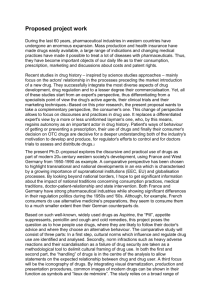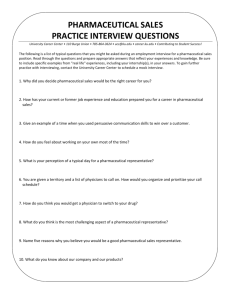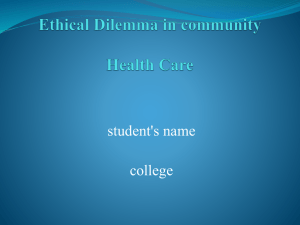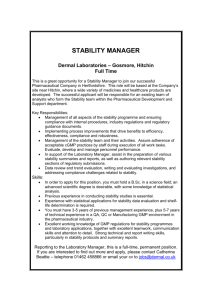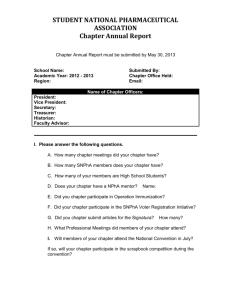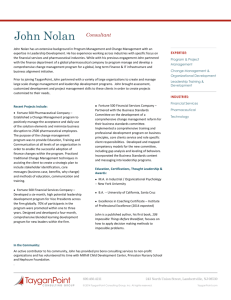CONFÉRENCE DES NATIONS UNIES SUR UNITED NATIONS CONFERENCE ON TRADE AND DEVELOPMENT
advertisement
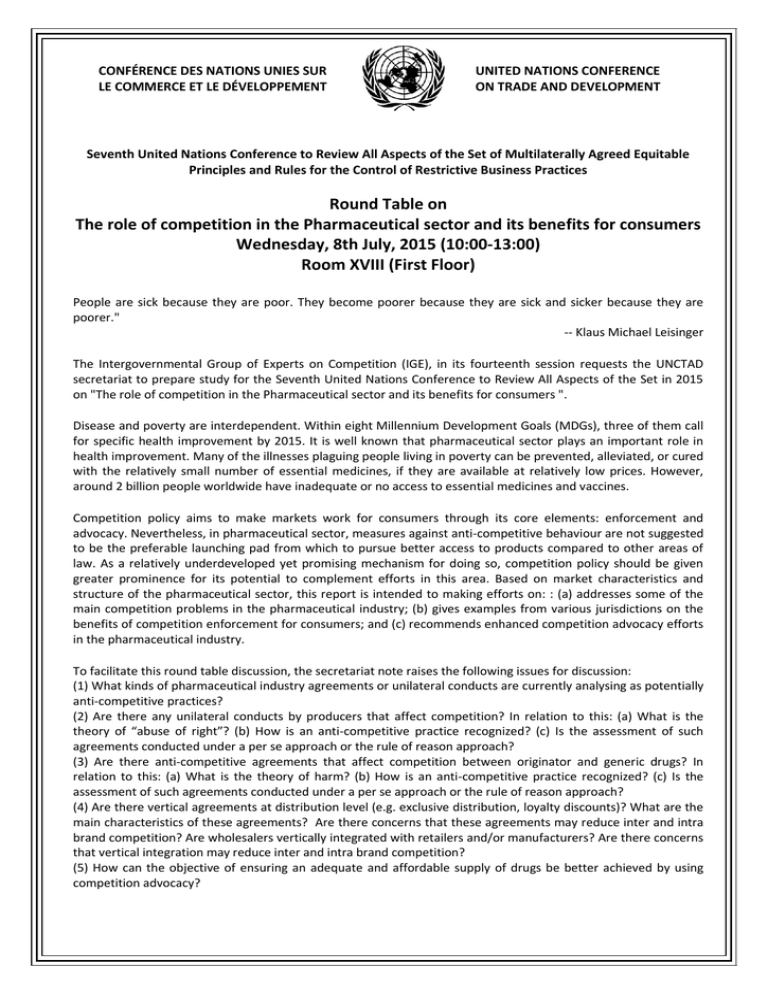
CONFÉRENCE DES NATIONS UNIES SUR LE COMMERCE ET LE DÉVELOPPEMENT UNITED NATIONS CONFERENCE ON TRADE AND DEVELOPMENT Seventh United Nations Conference to Review All Aspects of the Set of Multilaterally Agreed Equitable Principles and Rules for the Control of Restrictive Business Practices Round Table on The role of competition in the Pharmaceutical sector and its benefits for consumers Wednesday, 8th July, 2015 (10:00-13:00) Room XVIII (First Floor) People are sick because they are poor. They become poorer because they are sick and sicker because they are poorer." -- Klaus Michael Leisinger The Intergovernmental Group of Experts on Competition (IGE), in its fourteenth session requests the UNCTAD secretariat to prepare study for the Seventh United Nations Conference to Review All Aspects of the Set in 2015 on "The role of competition in the Pharmaceutical sector and its benefits for consumers ". Disease and poverty are interdependent. Within eight Millennium Development Goals (MDGs), three of them call for specific health improvement by 2015. It is well known that pharmaceutical sector plays an important role in health improvement. Many of the illnesses plaguing people living in poverty can be prevented, alleviated, or cured with the relatively small number of essential medicines, if they are available at relatively low prices. However, around 2 billion people worldwide have inadequate or no access to essential medicines and vaccines. Competition policy aims to make markets work for consumers through its core elements: enforcement and advocacy. Nevertheless, in pharmaceutical sector, measures against anti-competitive behaviour are not suggested to be the preferable launching pad from which to pursue better access to products compared to other areas of law. As a relatively underdeveloped yet promising mechanism for doing so, competition policy should be given greater prominence for its potential to complement efforts in this area. Based on market characteristics and structure of the pharmaceutical sector, this report is intended to making efforts on: : (a) addresses some of the main competition problems in the pharmaceutical industry; (b) gives examples from various jurisdictions on the benefits of competition enforcement for consumers; and (c) recommends enhanced competition advocacy efforts in the pharmaceutical industry. To facilitate this round table discussion, the secretariat note raises the following issues for discussion: (1) What kinds of pharmaceutical industry agreements or unilateral conducts are currently analysing as potentially anti-competitive practices? (2) Are there any unilateral conducts by producers that affect competition? In relation to this: (a) What is the theory of “abuse of right”? (b) How is an anti-competitive practice recognized? (c) Is the assessment of such agreements conducted under a per se approach or the rule of reason approach? (3) Are there anti-competitive agreements that affect competition between originator and generic drugs? In relation to this: (a) What is the theory of harm? (b) How is an anti-competitive practice recognized? (c) Is the assessment of such agreements conducted under a per se approach or the rule of reason approach? (4) Are there vertical agreements at distribution level (e.g. exclusive distribution, loyalty discounts)? What are the main characteristics of these agreements? Are there concerns that these agreements may reduce inter and intra brand competition? Are wholesalers vertically integrated with retailers and/or manufacturers? Are there concerns that vertical integration may reduce inter and intra brand competition? (5) How can the objective of ensuring an adequate and affordable supply of drugs be better achieved by using competition advocacy? WORK PROGRAMME 10:00 -- 10: 10 Presentation by UNCTAD Secretariat 10:10 -- 10: 30 Keynote speech Dr Sven Gallasch, University of East Anglia, United Kingdom 10:30 -- 11:30 Panel discussion (Part I) Panellists Mr Tembinkosi Bonakele, Commissioner, South Africa's Competition Commission Mr Handong Zhang, Director General, Department of Price, National Development and Reform Commission, PRC Ms Gabriella Muscolo, Commissioner, Italian Competition Authority Mr Markus Meier, Assistant Director of Bureau of Competition for Health Care Products and Services. United States Federal Trade Commission. 11:30 -- 13:00 Interactive debate (Part II) Netherlands Russia South Korea Spain Africa Competition Forum CUTS WIPO Delegates wishing to take part in this roundtable are kindly invited to inform the Secretariat accordingly by contacting Ms Mingyan Xu (Ming Yan Xu@unctad.org, Tel. +41229171644) or Jacqueline Bouvier (Jacqueline.bouvier@unctad.org) -2/2-
